Retail Giants Step Up: Costco, Ikea, Target, and Walmart Join the EV Charging Movement
A recent study by Consumer Reports sheds light on the current landscape of electric vehicle (EV) charging stations in the United States, focusing on the role of retailers. The research, which examined over 270,000 store locations across various retail categories, reveals a vast potential for growth in EV infrastructure through retail participation. Despite the low presence of EV charging facilities at retail locations, there are substantial benefits and federal incentives available for retailers willing to invest in this area.
Retailers and EV Charging Availability
The analysis encompassed a broad range of retail categories, including big box stores, grocery stores, drugstores, department stores, convenience stores, and discount stores. Findings indicate that EV charging stations are notably scarce across all retail types, with an average availability ranging from one in every 14 big box store locations to one in every 40 department stores. This scarcity highlights a significant gap in the current EV infrastructure and the opportunity for retailers to become more involved.
Benefits of EV Charging for Retailers
The addition of EV charging stations not only serves the growing number of EV drivers but also offers several advantages for retailers. Data suggests that installing EV chargers can increase store foot traffic by an average of 4 percent and revenue by 5 percent. Moreover, the majority of retail locations in the U.S. qualify for federal benefits that cover 30 percent (up to $100,000) of the installation costs, making it a financially viable initiative for many businesses.
The Triple Bottom Line
Installing EV chargers aligns with the concept of the triple bottom line, benefiting people, the planet, and profits. Retailers can attract more customers, enhance their brand image, and take advantage of federal incentives. Additionally, the strategic placement of charging stations can make sustainable transportation options more accessible to all communities, emphasizing the importance of equity in these efforts.
Consumer Interest and Retailer Commitment
The study also includes survey data revealing that many Americans are considering EVs, but the lack of convenient charging options poses a significant barrier. While some retailers like IKEA have made notable progress by offering EV charging at nearly all of their U.S. locations, others lag far behind, with no leading fast-food chains providing significant EV charging facilities.
Recommendations for Retailers
To address the growing need for EV infrastructure, Consumer Reports urges retailers to:
- Establish and adhere to specific timelines for EV charger installation.
- Consider equity in site selection to ensure accessibility in underserved communities.
- Educate both customers and employees about EV charging.
- Maintain transparency regarding charging locations and services.
- Ensure the durability and reliability of charging stations through proper maintenance.
Conclusion
Retailers possess a unique opportunity to play a crucial role in expanding the EV charging network across the United States. By investing in EV infrastructure, retailers can not only contribute to the environmental cause but also derive economic benefits through increased customer engagement. The encouragement of federal incentives further supports this initiative, offering a strategic avenue for businesses to partake in the clean transportation future.
This article was co-written using AI and was then heavily edited and optimized by our editorial team.
More by TTAC Staff
Latest Car Reviews
Read moreLatest Product Reviews
Read moreRecent Comments
- Master Baiter If you rear-end someone, it's your fault, period. If motorcycles need more time to stop, then riders need to increase their following distance.
- Master Baiter Until recently, virtually every cell phone and computer was made in China and no one seemed to care. The majority are still built there. I'm not a fan of tariffs as it just gives domestic makers a price umbrella to sell their garbage products to U.S. consumers at higher prices.
- Teleedle It would seem that if the Chinese made cars and trucks are ready to compete on the world market that they should be able to compete without the need for government help through subsidies. That's never going to happen with the mindset of their leadership. The rate at which they've transferred the ability to copy to the rate of their abilities to innovate isn't really astounding, but it is truly indicative of their inherent abilities to see through problems and overcome without a lot of fuss. They just have a different way that seems to continually baffle the Western mind. It only goes back a few thousand years. The rest of the world just has to catch up... Without tariffs, three Seagulls could be bought for the price of one loaded Toyota Corolla. I would settle for a nice small pickup truck that can get 30-35 mpg, if the Chinese want to build something with real durability and value. I'm sure they can do that for about $10-12k US, too, dumping them all the way to the bank. Neither Trump or Biden or Bugbrain want that, though. Restrictive 'targeted' tariff ideas indicate that they all want protectionism and the Chicken Tax to continue. The price of living in freedum in the non compete world... and the hallmark of one upmanship by the political class towards more and more expensive transportation related needs. All costs are ALWAYS passed onto the end consumer. Tariffs are the burden of the extra cost. Tariffs are punitive, remember... as intended. The political class is still living off the backs of their constituents throughout the world... same as it ever was.
- Theflyersfan One day, some of these sellers will come to the realization that cars are not houses and putting expensive upgrades into one doesn't equal a higher selling price down the road. $29,000? The only Challenger that has a chance of value down the road, and only with low miles, is the Hellcat.
- SaulTigh The Cyclone engine was really powerful, but with a fatal flaw. Ask me how I know.



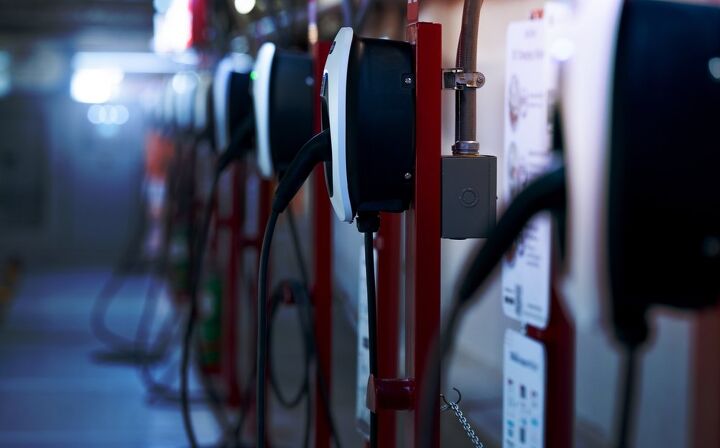











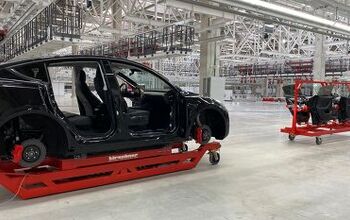
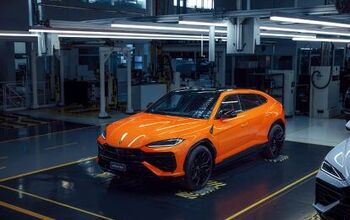

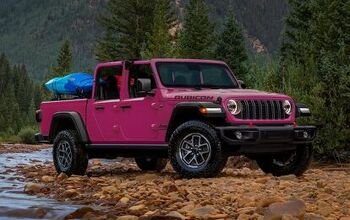


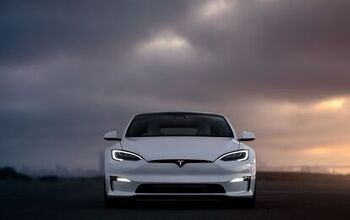











Comments
Join the conversation